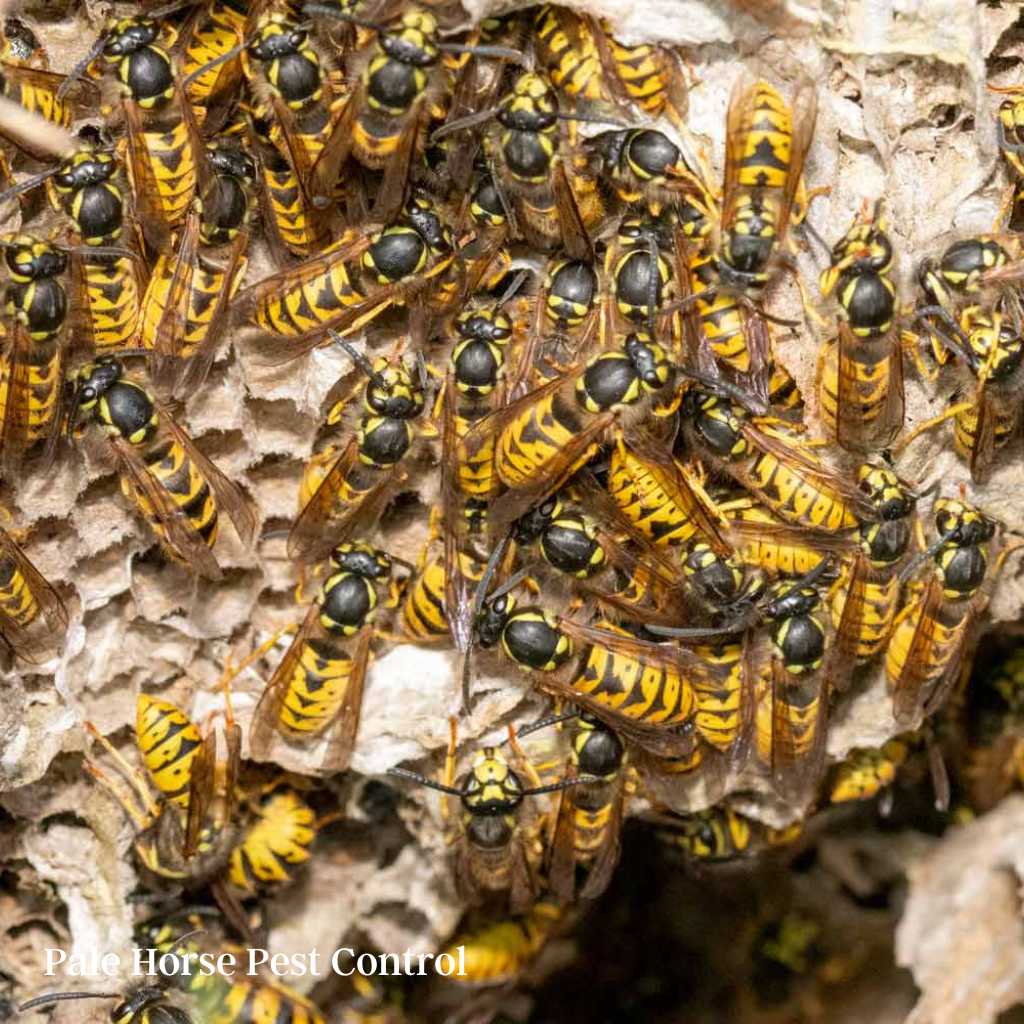Bristol Wasp Season: When Are Wasps Active?

Bristol Wasp Season: When Are They Active?
Wasps are an unwelcome guest in many Bristol homes and gardens, buzzing around, picnics, and outdoor cafés. Knowing when these pests are most active can help you stay one step ahead, protecting your family and property from stings and infestations with our Bristol wasp control service.
In Bristol, wasp season brings unique challenges due to the city’s climate and urban-green mix. In this article, we’ll dive into the timing of Bristol’s wasp season, share prevention tips, and outline the best control methods to keep your home wasp-free.
When Is Wasp Season in Bristol?
In Bristol, wasp season typically runs from late spring to early autumn, with peak activity between June and September. The city’s temperate climate, with summer temperatures often hitting 30–32°C, creates ideal conditions for wasps to forage and expand their nests.
During March until late June, wasps are mostly interested in sources of protein to feed their hungry brood or larvae, but after that, they come looking for sugar! Wasps are drawn to sugary foods, fruits, making places like Clifton’s cafés or Harbourside food stalls prime targets.
Wasp nests begin forming when a queen wasp emerges from hibernation in March through May, when queens build small, golf ball-sized nests in lofts, sheds, or trees.
Late summer, particularly August, sees heightened aggression as nests mature and food becomes scarcer, and the phenomenon of wasps drunk on fermented fruit becomes more common. By October, activity declines as colder weather and food shortages cause colonies to collapse, though some wasps linger into December in mild years.
Preventing Wasps During Bristol’s Wasp Season
Stopping wasps before they become a problem is key during Bristol’s active season. Here are tailored prevention tips:
- Cover Food and Drinks: Bristol’s outdoor dining, from Stokes Croft food trucks to Bedminster barbecues, attracts wasps. Keep sugary drinks and food covered to avoid luring them, especially in July and August.
- Seal Entry Points: Older homes in areas like Redland or St. Andrews often have gaps in eaves or windows, or unfilled gaps into wall cavities. Use caulk or mesh to block these, preventing queens from nesting in lofts or wall cavities.
- Secure Bins: Bristol’s bin collection schedule can draw wasps to unsecured waste. Ensure lids are tight, particularly during summer when rotting food smells peak.
- Plant Repellents: Add mint or eucalyptus to your garden or balcony—common in Bristol’s allotments, and easily acquired from local garden centres, to naturally deter wasps without chemicals.
Wasp Extermination During Peak Season
If wasps establish a nest during Bristol’s wasp season, quick action is essential to avoid aggressive swarms. Here are the best extermination options:
- Professional Pest Control: For nests in lofts, sheds, or gardens, hiring a local BPCA-accredited expert is the safest choice. At Pale Horse Pest Control in Bristol, we can eliminate nests in 10–60 minutes, often with same-day availability. Our professionals are equipped to handle mature nests, which can be dangerous if disturbed.
- DIY Extermination: For small, early-season nests, DIY wasp sprays, available at hardware stores in Broadmead or Cotham, can work. Apply treatments at dusk when wasps are less active, wearing protective gear to avoid stings. Avoid tackling large or inaccessible nests, as disturbing them can trigger a defensive response. Always follow the manufacturer’s guidance.
Post-Treatment Steps to Stay Wasp-Free
After removing or treating a nest, ensure wasps don’t return as the season progresses:
- Seal Nesting Sites: Check your Bristol home for cracks with professional help from builders and roofers, especially in attics or around chimneys, and seal them with caulk or mesh. This prevents new queens from nesting,
- Keep Your Property Clean: Regularly clear food scraps or sugary spills from patios or gardens, particularly in busy areas like Gloucester Road, to reduce wasp attraction.
- Monitor for Activity: Inspect your property weekly during summer for signs of new nests, such as buzzing near eaves or sheds. Early detection stops colonies from growing into thousands of wasps.
Bristol’s wasp season, peaking from June to September, brings a surge of activity that can disrupt your summer. By understanding when wasps are most active and taking proactive steps, you can protect your home from infestations and stings.
From covering food during Harbourside picnics to sealing attic gaps, prevention is your first and most environmentally sound, first line of defence. For established nests, trust Pale Horses’ professional pest control services in Bristol for fast, safe solutions.
Stay vigilant, and enjoy a potentially wasp-free summer in our vibrant city.